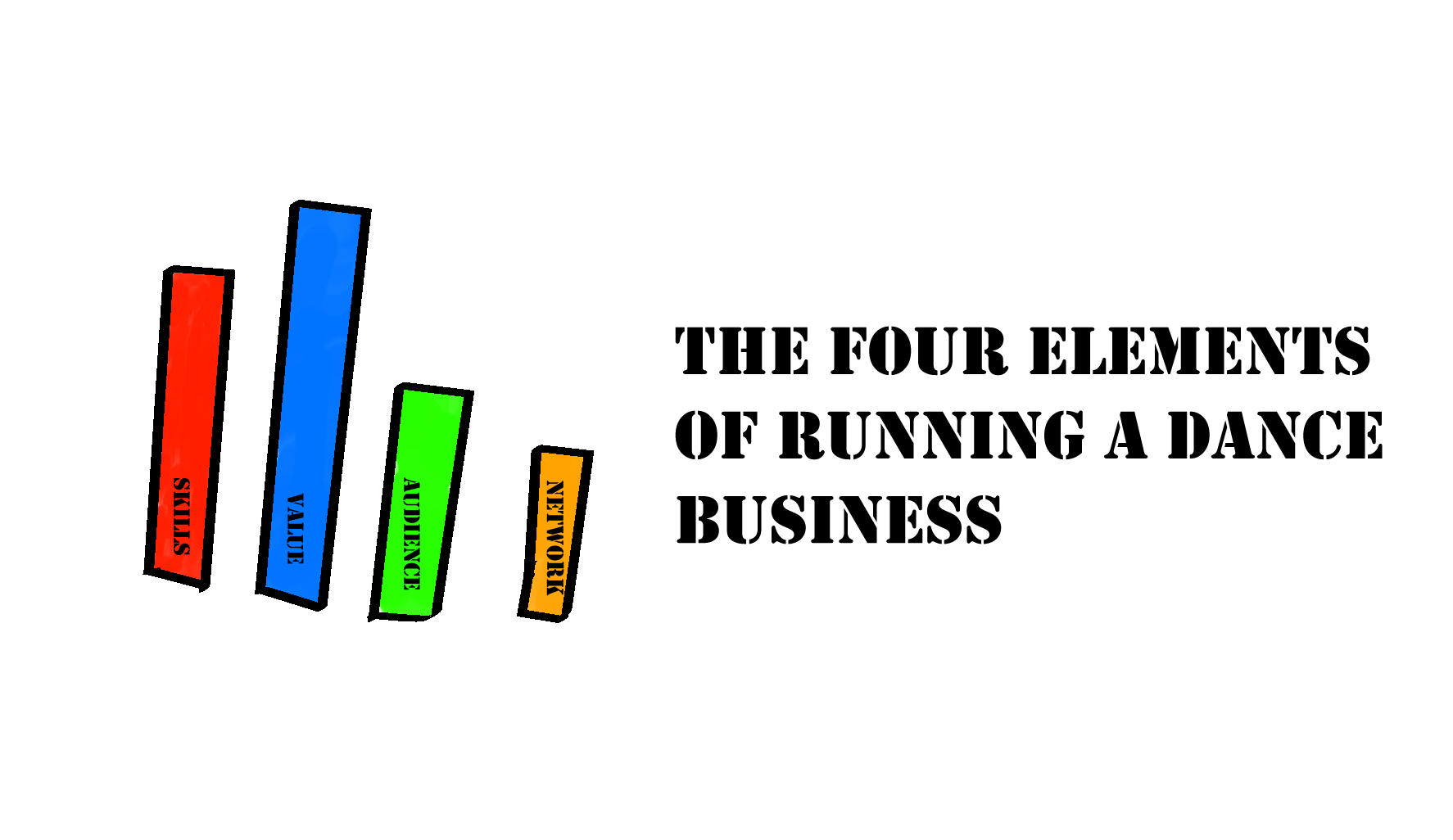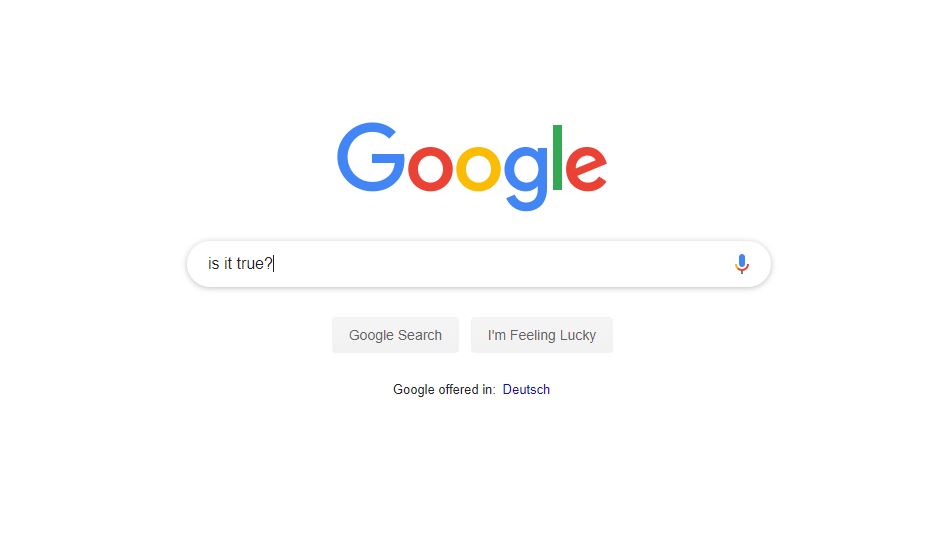Most people who are into dance, flirt with the idea of becoming a professional dancer from time to time. While this is not the right thing for everybody, it is not too hard to pull off for someone who really wants it. With discipline, dedication and honesty about what oneself can do, it is doable, even without any talent. (Talking about myself here, not you :-p)
Being successful in your dance business is no matter of luck. There are four key components you have to take care to create a sustainable income. Only one of them is directly related to dancing. Invest time in all of them and you will see results in a matter of months.
- Honing your craft.
- Providing value.
- Finding your audience.
- Building your network.
If you have it all, you will be successful. Let me explain in a little bit more detail.
Honing your Craft
You need to be good at what you do. This is an essential rule in every business. You deliver bad quality, you are out – even when you have everything else down.
Put in the hours into your dance skills, your understanding of the music, your knowledge on how to create shows and how to present yourself. You want to create the illusion that everything you do is super easy and comes naturally to you. Every great dancer delivers this illusion and it is imperative that you can do it too.
This also goes for secondary dance workfields like organising events, judging, or anything where your knowledge and experience as a dancer is the key. But those are a topic for another post.
Providing Value
Giving the people something they crave is the key to success. If you think about it, it is obvious. Nonetheless, it often happens that people try to “sell” things that nobody really needs. Don’t fall into this trap.
The best methods of providing value to peoples lives (from a business point of view) are:
- teach them
If someone wants that move but does not get it for years and you help him finally get it, you can be sure you added some value to his life. This goes for everything you can teach dance wise: steps and moves, musical understanding, groves, concepts, choreography, … - enlighten them
If you spark insights that give them an understanding of how they can improve by themselves. This is very similar to teaching but deserves its own place. You can introduce are a certain kind of thought process or sources of inspiration that may help their development. It is more like telling them where to look instead of what to do. - entertain them
Entertainment is one of the biggest industries right now and dance can do it very well. People want to be distracted, they want to be amazed and see things they have never seen before. If you create that show that can take them out of their regular lives for even the shortest amount of time, you will earn your place in the hearts of the people and that is where you ultimately need to be. - touch them emotionally
Connecting to people in a way that you can take them on a journey through more emotions than just enthusiasm is even better. You know the feeling when a movie or music takes you on an emotional rollercoaster, right? That is where your audience needs to be. To be honest: it is not easy and takes a lot of work and/or talent. There are very few dancers and choreographers out there that can do that. If you find out you can do it, look no further for what you should do.
Find your Audience
Jeff Goins writes in his bestseller Real Artists don’t Starve: “in order for art to have an impact, it must first have an audience”. This is another no-brainer if you hear it from somebody else. Building or finding your own audience is still one of the things that a lot of dancers neglect. Dance is art and art is a matter of taste (as soon as a certain level is reached of course). So the people that enjoy your dance might not be the same that enjoy the dance of some of your colleagues and vice versa.
You should take the time and research the people who love to watch your work. Create a place to present what you make and make it easy to find. Luckily today that is not as hard as it used to be. The internet is your best friend. These are some of the tools you can and should use:
- Your Website
There is really no excuse to wing this. On your website, you can introduce yourself, show your work, post events or shows you are attending and give people all the info about you. If you have things to sell, you can put it up there too. - Social Media
Social networks help you connect with the people that like what you do. You go there and direct the traffic to your website, where they can learn everything about you. Don’t make the mistake to promote all the time. Spamming people will not bring you sympathy. On social media, the goal is to engage with your audience and build a relationship. When people are comfortable around you, they will care about your promotions as well. - Word of Mouth
Still the strongest form of an ad! If you are recommended to someone by a friend of theirs, your chances are really good that they consider checking your stuff out. - Meeting in real life
If you can meet people and make a real world impression, that is the way to go. The only disadvantage is that you can only be at one place at a time. This means it does not scale well.
Building your Network
This is the same work as building your audience but for a different group of people. Your professional network are the people that you collaborate with or that help you do what you do. It is imperative to have healthy relationships with them and to never let them down as long as they treat you right. Here are some examples of people you should have in your network (depending on your work fields not all may apply):
- other dancers of course
- choreographers
- producers & directors
- composers
- musicians
- booking agents
- event promoters
- festival directors
- photographers
- videographers
- an accountant (if you are not into accounting yourself, this one is crucial)
You might not need all of them and depending on your personal niche there might be many more.
Here we have them: the four crucial elements to running your dance business. When you are planning to start your dance business, or you are already earning money with it, I encourage you to grab a notebook and think about all four elements in detail. List your strengths and weaknesses. What value can you offer to people? What do you know about your audience and in which ways do you connect with them? Make a list of your collaborators and see if you miss anyone. There is power in the clarity that you gain from seeing this base-line study in front of you.
From there, we can start to level up.



